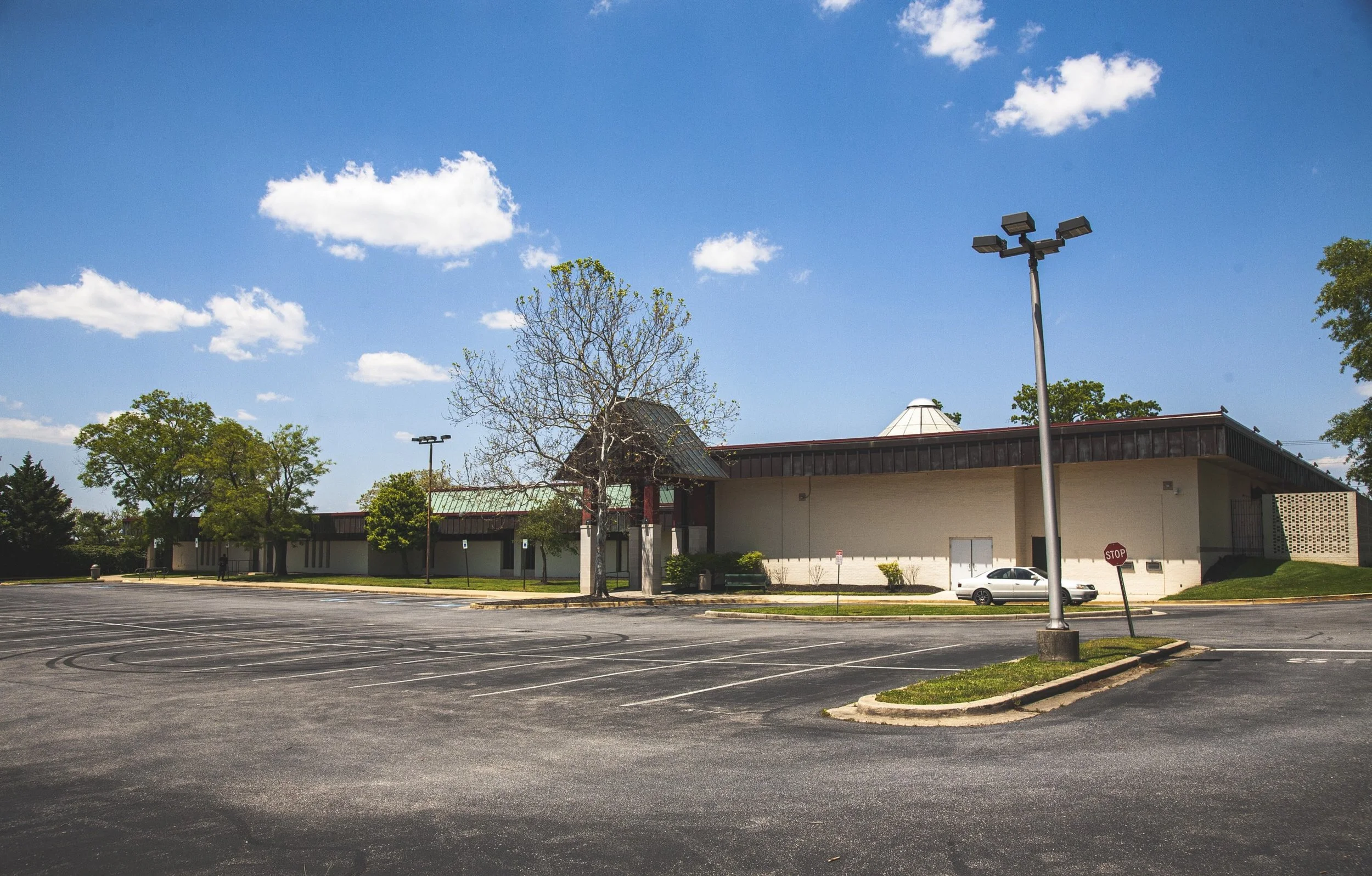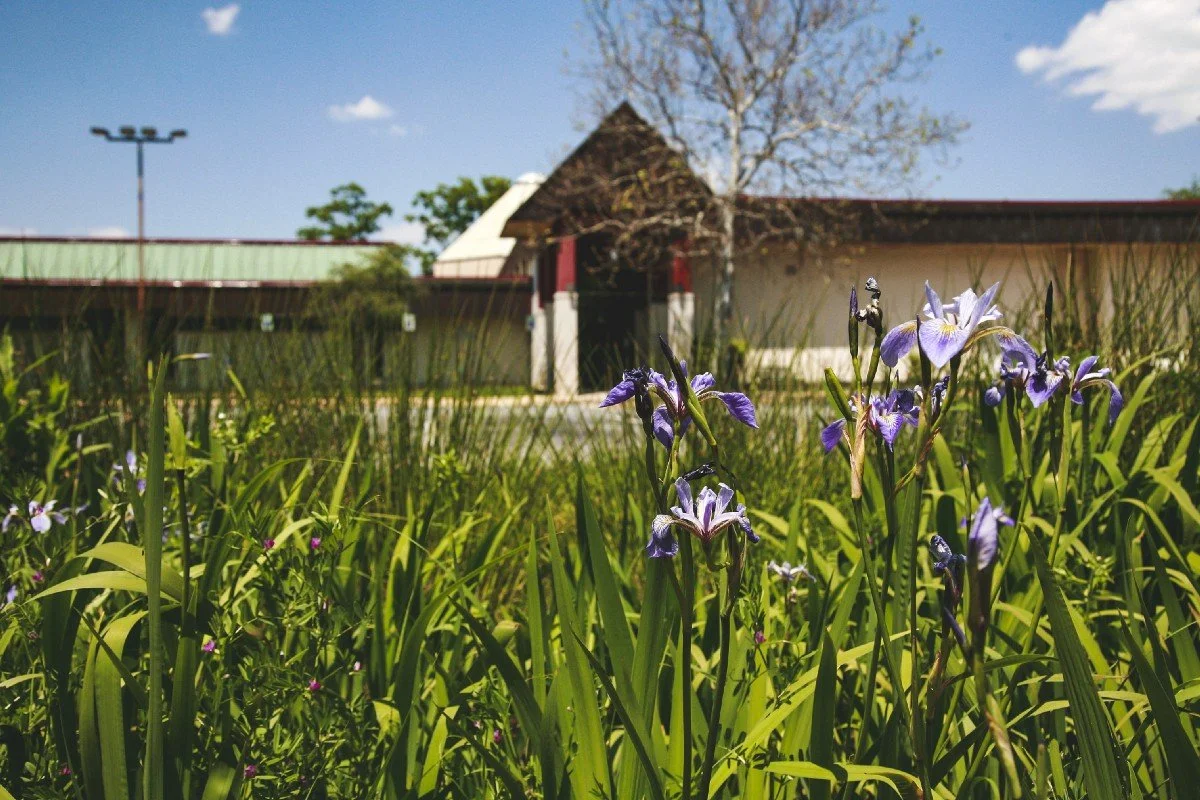Prince George’s County Memorial Library shutdown its buildings to move into cyberspace.
Newsletter Sign Up
〰️
Newsletter Sign Up 〰️
Melanie Townsend Diggs is a very experienced librarian who once worked at Enoch Pratt Library before she was hired at the Prince George’s County Memorial Library System as a South Area Manager three years ago. She has a background in science. Before her library career, she had gone to school and earned a bachelor’s degree in biology with a concentration in microbiology. Townsend Diggs never imagined that when she was hired she would utilize her biology degree, and her two girls’ love for science, in her new role during this pandemic. But she does.
“So for me, I was like, ‘I know my kids like science, and doing activities at home.’ I thought the STEM-at-home programming was something…we could do together. We’ve been enjoying it.”
Townsend Diggs has had to, along with her staff, become something she never expected — a digital content creator. When she was first asked by Nicholas Brown, chief operating officer of community and outreach at the PGMLS, to think of any virtual programs they could use to reach their clients, what came to mind was how she could put her degrees to work. In her enhanced role she teaches a family-oriented online STEM class to children between the ages of 5 to 12 years old. She sometimes uses household objects, fruit, oil, etc., to teach STEM to families in PG County. She also advises parents to be present with their children to aid with the activity. Her two daughters teach alongside her.
“So I had to think about what expertise could I bring to the virtual content,” Townsend Diggs said. “So for me, I was like, ‘I know my kids like science, and doing activities at home.’ I thought the STEM-at-home programming was something…we could do together. We’ve been enjoying it.”
The PGCML system, which consists of 19 branches throughout PG County, normally has about 8,800 in-person programs throughout the year, which entail children’s reading time, Spanish and English classes for adults, STEM classes, which include coding for children, opportunities for residents to get legal advice, and times when local authors and historians attend the branches to share their work. These are programs that transitioned, at least some of them, to virtual. Also, the library was already offering customers digital content in the form of professional training through Lynda.com, clients also have access to e-books and can stream movies.
“We didn’t have to reinvent the wheel in terms of having robust online content,” said Brown, who, on behalf of the library, conducted an online survey asking PG County residents for feedback on digital programming.
Newsletter Sign Up
〰️
Newsletter Sign Up 〰️
Since the library officially closed on March 16, it has dramatically shifted the way community members interact with it. Families can no longer bring their children to a physical building to hear books read to them, community members for months now have not known what it feels like to check out a paperback or hardcover book from their favorite branch, nor can they come to play video games, or use the computers to print out forms, pay bills, or receive tutoring. However, though the library is closed, and it has switched to virtual products — according to the same survey conducted by PGMLS — some clients asked if the library would establish a curbside book pick up for seniors.
Townsend Diggs said that there may be a lot of people who are confused as to why the library closed, saying that she is aware of the fact that those people needed the library to access its resources. Serving as a manager at one of Enoch Pratts’ Library branches when Baltimoreans were publicly grieving the untimely and unjust death of Freddie Gray, an African American male who suffered a spinal and head injury, resulting in his death in police custody, Townsend Diggs said she reflects on how that library stayed open during that time, offering help to the community. She said she thinks about how the community is in need and how the library can help.
“For me, I know a lot of people may not understand why the library closed, you know physically,” Townsend Diggs said. “[They may have questions] like: Why didn’t we remain open? There are a lot of people who need us. They need to fill out unemployment. They relied on us [to use the library’s]computers. I just want to let people know we haven’t forgotten about them; we are still here for them…, although not physically but virtually.”
This pandemic has exacerbated the digital divide. How were library staff going to ensure families with no internet gain access to its digital products while sheltered in place? Before the branches officially closed, on March 15, Brown said customers were allowed to rent out Internet hotspots until they reopened again. And knowing that people often parked at the library’s parking lots to use its WiFi, Brown said they decided to keep the WiFi running, giving customers a chance to log in from their cars.
“It’s not just people who don’t have home internet,” Brown explained. “A lot of folks may have the internet on their mobile phones, but they might have a data cap, so they just can’t spend it all using the Internet. We’ve been pushing [people to use] the drive-up WiFi throughout the closure.”
Though the library’s WiFi is restricted to those with PG County library cards, Brown said, anyone can go online and sign up for a library card, and they would receive a library card number instantly.
“It’s as open as it can be right now,” Brown explained.
“It’s not just that we needed to learn the technology, it’s also our customer base, who have various amounts of expertise using technology and have a wide range of devices that they are trying to access this through,” said Zukowski.
When staff knew the library would close, Brown, along with programmers and managers, started to think about what it meant to transition the library to a virtual hub of learning. Then the library team consisted of what was categorized as essential workers: programmers and managers, about 40 people in all. Before the closing, they had over 300 staff. To lay a foundation, Brown held training sessions meant to equip, inspire, and to stoke the groups’ creative passions.
But they also needed to think about how they were going to distribute the content. According to Rachel Zukowski, a program service manager, the group “put their heads together” to figure out what kind of platform they needed to be safe and secure for customers and one that was easy to understand.
“When we started out, we were using Zoom, but with the security vulnerability we needed to switch to something that was going to be more secure for us and our customers,” said Brown. “We started to use a platform called Crowdcast, which has been great and allows us to do the multi-streaming to the platforms to maximize the reach.”
“It’s not just that we needed to learn the technology, it’s also our customer base, who have various amounts of expertise using technology and have a wide range of devices that they are trying to access this through,” said Zukowski.
This team of 40 would steer the library and its programs onto the Internet. The library’s most popular in-person program was children’s story time, according to Brown. So to fill that need immediately, they kicked off their virtual debut with an online read-aloud for children. Brown said library staff, who can now add digital content creators to their resumes, are distributing about 150 digital programs for their customers.
Brown said this move to go virtual was a step forward for PGMLS, and “an opportunity for folks [in the community] to connect to us who normally wouldn’t.”
Now they have virtual read alouds, in Spanish and English, twice a week, and ASL books readings for those in the community who are deaf. They also have shows that teach Prince Georgians how to make masks to protect neighbors from catching the virus, author talks, and Roberta Phillips, CEO of Prince George’s County Memorial Library System, hosts an online conversation with community leaders. PGMLS has partnered with the Washington Nationals, a baseball team, to provide “Imagine Your Story,” an online reading program for any age and with D.C. United, where soccer players read books aloud virtually.
“One thing we did early-on, was we launched an online library questionnaire, within the first week of the closure because we really wanted to shape what we were promoting and developing based upon what the community wants,” said Brown.
The desire, Brown said, is for those virtual programs “to replicate” the former in-person programs they had in the virtual space. Brown said the staff doesn’t have the bandwidth to run 800 programs virtually, which would reach a huge audience. However, the staff has digital content for teenagers and adults. The PGMLS uses social media platforms to stream content: Facebook, YouTube, and Twitter.
Vilma Aracely Sandoval-Sall, English language learner program coordinator at PGMLS, who created Coffee At 4, an online show that helps to bring needed information to the Latino community in the Prince George’s County area, said becoming a digital content creator was a new experience. Before the library closed, Sandoval-Sall oversaw PGMLS staff and volunteers that teach English learning, mentoring programs, and Spanish literacy programs for migrants and refugees who have traveled to the United States and for Latinos who are residents of Prince George’s County. Clients came to the library to attend classes or attended at other buildings.
After the library closed, Sandoval-Sal, along with Brown, immediately started a virtual storytime program, Biblioniños, for the Latino community. Sandoval-Sall said they wanted to make sure they weren’t leaving anyone behind.
According to Sandoval-Sall, Brown wanted to add more virtual programs that would help to deepen the library’s engagement with the Latino community during the pandemic. He asked her if they could convert the Kids Achieve Club, a homework tutoring program, to an online program. Pre-COVID-19, children would attend branch libraries to receive help with homework. Sandoval -Sall had concerns around doing that program virtually. Latino kids were already doing online learning via Prince George’s County School system, and, in addition, some families may not have access to the internet, at least not in a way where they can do online tutoring. So, Sandoval-Sall offered another idea.
“So I proposed to him, which I really didn’t know what the outcome would be,…a program where [I] sort of interview…community representatives from non-profits, or [people from] government agencies to talk about their services and their resources, so the community can learn about what is around them and its structure. So we did that,” explained Sandoval-Sall.
The virtual show is once a week, Tuesday at 4 p.m., and, according to Sandoval-Sall had garnered the most online attendance since the library entered into cyberspace for an undetermined time.
Sandoval-Sall said that she would like to continue the online show after the library reopens.
“I know that other library systems across the U.S. are doing the same…but our library system, I have to say, has been very proactive,” she said. “I think a lot of that has to do with Nick being onboard. He’s really good with technology, and…he is energized, and he wants to do something for the community. He has made it possible for us to do all of this.”
Zukowski and others are in charge of coordinating online read aloud and making sure they run smoothly. She also helps to lead a virtual online Yoga class for kids. Before working in the library system, Zukowski was a teacher for 10 years, and the experience of hosting virtual shows has allowed her to put those teacher skills to use.
“In my [every day] role I don’t often get to provide programming for the public,” said Zukowski. “My role is to be a resource for the staff who gets to do that for the public. Having that interface has been really fun, even though I can’t see reactions from my audience necessarily, but through the chat. It’s so good to stay in practice. I think for the leadership team to be able to show…that we can step in and run these programs as well.”
However, Zukowski, and Sandoval-Sall, said that there is a lot of behind-the-scenes work that goes into creating virtual content. Zukowski said, “it was a little intimidating being tossed live in front of your audience without doing pre-work.”
“So my first storytime, read-aloud, program — I recorded ahead of time,” she explained. “And then, I felt comfortable going live a week after that, for example.”
However, Brown, Zukowski, Townsend Diggs, and Sandoval-Sall have passed on their experience to other staff members so that other staff members can become virtual content creators, even if it is not what they signed up for. After all, Zukowski said: “Most people didn’t sign on for this job knowing that they were going to be producing live content from their living room, having to set up a studio on the fly.”
On May 1, PGMLS team — Brown, Zudowski, and Stephen Fitzgerald, digital services manager — collaborated with Enoch Pratt Library, Baltimore, and the Maryland State Library to train librarians from across the state on how to use Crowdcast, how to broadcast virtual content, how to pre-record programs, how to do live-broadcasting, workflows and procedures for planning and reviewing virtual content.
Brown said the training was “an opportunity for staff to contribute to the robust online library content that PGMLS is offering to the public, while providing them with an opportunity to explore their creative and subject interests.”
The library is not quite sure when it will reopen. However, whenever the library opens, the pandemic has changed the way it approaches serving PG County residents.
“Now that we have gone full speed ahead, I am looking forward to multiple ways of exploring different types of virtual programming,” said Townsend Diggs. “With more people coming back onboard, staff being able to brainstorm and thinking of different activities to share,…I know that we have programming that will interest people of all ages. We’ve launched out into the deep. We can’t go back.
Newsletter Sign Up
〰️
Newsletter Sign Up 〰️
________________
Note: Earlier we said the library had approximately 800 in-person programs. That was inaccurate. It had 8,800 in-person programs before the pandemic.
The Intersection misspelled Melanie Townsend Diggs’s name. We wrote Townsend Riggs. The Intersection regrets that error. We have made the proper corrections.
For news tips, contact The Intersection Magazine at theintersectionmagazine@protonmail.com




